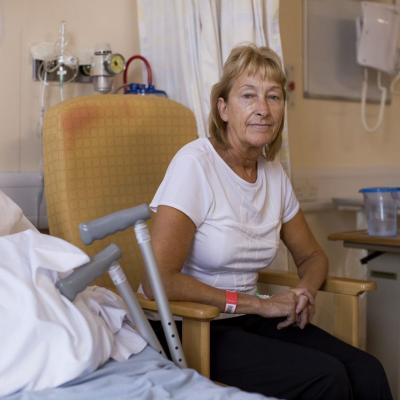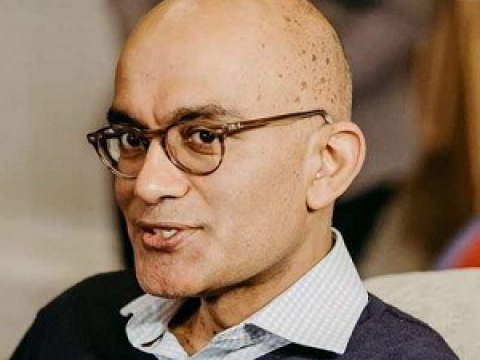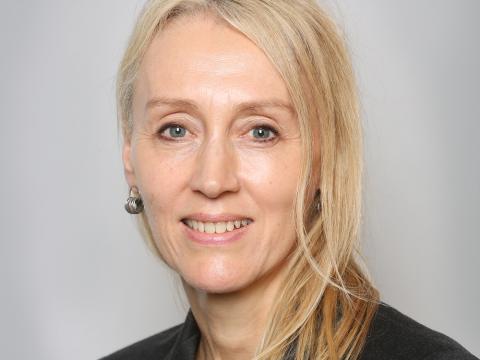Webinar: How will the public mood shape care after the pandemic? The evolution of public perceptions and expectations of health and social care during the last year of the COVID-19 crisis
15 April 2021

What did the public think of care during the last year of the COVID-19 crisis? What does this mean for the shape of care and what the government should do next?
Drawing on Ipsos MORI polling taken before and during the pandemic, up to the present, our panel considered shifts in public attitudes to care. These include satisfaction with and expectations of the NHS; the biggest priorities facing health and social care; and satisfaction with how the government managed the pandemic.
The panel discussed the key questions: are there significant shifts in public opinion? Why? Are they likely to be permanent? And what do they mean for the government, national leaders in the NHS and social care and clinicians in the recovery period?
This webinar was co-hosted with Ipsos MORI on Thursday 15 April 2021.
You can download Ben Page's presentation by clicking the button below.
Speakers
Dr Vinod Diwakar is the Regional Medical Director and Chief Clinical Information Officer for the London Region for NHS England and NHS Improvement and is a practising Consultant General Paediatrician.
He provides clinical leadership to London’s health and care system. During the COVID-19 pandemic, he was part of the leadership team which rapidly expanded the number of adult critical care beds across the capital and enabled changes to over 80 clinical pathways. He has specific leadership responsibilities for improving outcomes in urgent and emergency care, cancer, children and young people, heart and respiratory disease and on reducing health inequalities. He also is the regional lead for innovation, sustainability, anchor institutions and health equity.
He has a particular focus on delivering the vision set out in the NHS Long Term Plan and the vision for London to be the healthiest global city and best global city to receive health and care through a strategy developed with the NHS, the Mayor of London, 32 London Boroughs and Public Health England.
He has many years of experience working as medical director, at Great Ormond Street Hospital, and before that at Birmingham’s Children’s Hospital and has led and contributed to policy and standards at national, regional and local level. He continues to practise as a consultant paediatrician.

Tim Gardner joined the Health Foundation in October 2014 as a Senior Policy Fellow.
Prior to joining the Health Foundation, Tim spent ten years at the Department of Health working on policy and legislation in a variety of roles. Most recently, Tim was a Senior Policy Advisor in the NHS Strategy and Delivery Unit where he advised on a range of projects including the Dalton review, the Better Care Fund and the Government response to the Francis Inquiry.
Prior to that, Tim worked on a range of areas including primary care, cancer and mental health as an NHS performance manager in the Department’s Recovery and Support Unit. He was Secretary to the NHS Management Board and a Assistant Private Secretary to the Chief Medical Officer, and also spent three years at the Department for Education advising on policy on children’s services.
Tim has an MSc in Health Policy from Imperial College London.

Isabel Hardman is Assistant Editor of the Spectator and presenter of Radio 4’s The Week in Westminster. She regularly writes political columns for a number of other publications, including The Times, Sunday Times, Observer and Evening Standard. She is also a regular guest on programmes such as the Andrew Marr Show, Newsnight and Question Time.
Isabel’s first book, Why We Get the Wrong Politicians, was shortlisted for Waterstones’ 2018 Book of the Year, won Book of the Year by a non-parliamentarian at the Parliamentary Book Awards, and was longlisted for the 2019 Orwell Prize. In 2020 she published The Natural Health Service, about the benefits to our mental and physical wellbeing of spending time in nature.
Isabel is now working on a major history of the NHS.

Ben Page is Chief Executive of Ipsos MORI. He joined MORI in 1987 after graduating from Oxford University in 1986, and was one of the leaders of its first management buyout in 2000. A frequent writer and speaker on trends, leadership and performance management, he has directed thousands of surveys examining consumer trends and citizen behaviour.
From 1987–1992 Ben worked in our private sector business on corporate reputation and consumer research, working for companies like Shell, BAE Systems, Sky TV and IBM. Since 1992 he has worked closely with both Conservative and Labour ministers and senior policy makers across government, leading on work for Downing Street, the Cabinet Office, the Home Office and the Department of Health, as well as a wide range of local authorities and NHS Trusts.
He became Chief Executive of Ipsos in the UK and Ireland in 2009.
Ben is a Visiting Professor at Kings College London, and a fellow of the Academy of Social Sciences. He sits on the Economic and Social Research Council (ESRC) at UKRI. He serves on advisory groups at the Kings Fund, and the Social Market Foundation (SMF), and is a Trustee at the Centre for London and at the Centre for Ageing Better, as well as a patron of Create Streets. He recently served as a commissioner on the Resolution Foundation's Intergenerational Commission. He is a Council member of the CBI for London. Ben was named one of GQ’s 100 Most Connected Men of 2015.
He regularly appears on national TV and radio programmes.

Chair
Dr Jennifer Dixon joined the Health Foundation as Chief Executive in October 2013.
Jennifer was Chief Executive of the Nuffield Trust from 2008 to 2013. Prior to this, she was Director of Policy at The King’s Fund and was the policy advisor to the Chief Executive of the National Health Service between 1998 and 2000. Jennifer has undertaken research and written widely on health care reform both in the UK and internationally.
Originally trained in medicine, Jennifer practised mainly paediatric medicine, prior to a career in policy analysis. She has a Master’s in public health and a PhD in health services research from the London School of Hygiene and Tropical Medicine. In 1990–91, Jennifer was a Harkness Fellow in New York.
Jennifer has served as a Board member on several national regulatory bodies: the Health Care Commission 2004–2009; the Audit Commission 2003–2012; and the Care Quality Commission 2013–2016. She has led two national inquiries for government: on the setting up of published ratings of quality of NHS and social care providers in England (2013); and on the setting up of ratings for general practices (2015). She was also a member of the Parliamentary Review Panel for the Welsh Assembly Government advising on the future strategy for the NHS and social care in Wales (2017–2018).
In 2009, Jennifer was elected a fellow of the Royal College of Physicians, and in 2019 was elected as a fellow of the Academy of Medical Sciences. She was awarded a CBE for services to public health in 2013, and a Doctor of Science from Bristol University in 2016. She has held visiting professorships at the London School of Hygiene & Tropical Medicine, the London School of Economics, and Imperial College Business School.

Related analysis
Event Slides
Work with us
We look for talented and passionate individuals as everyone at the Health Foundation has an important role to play.
View current vacanciesThe Q community
Q is an initiative connecting people with improvement expertise across the UK.
Find out more

